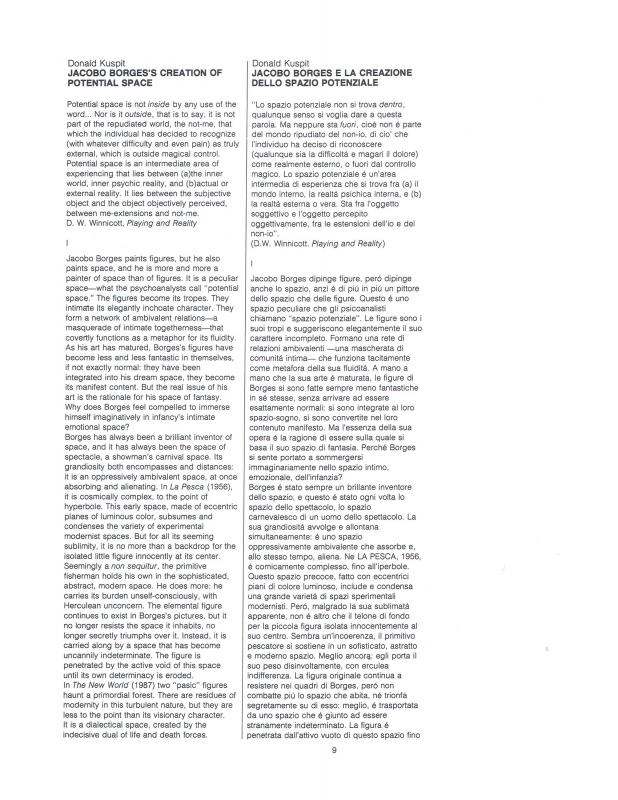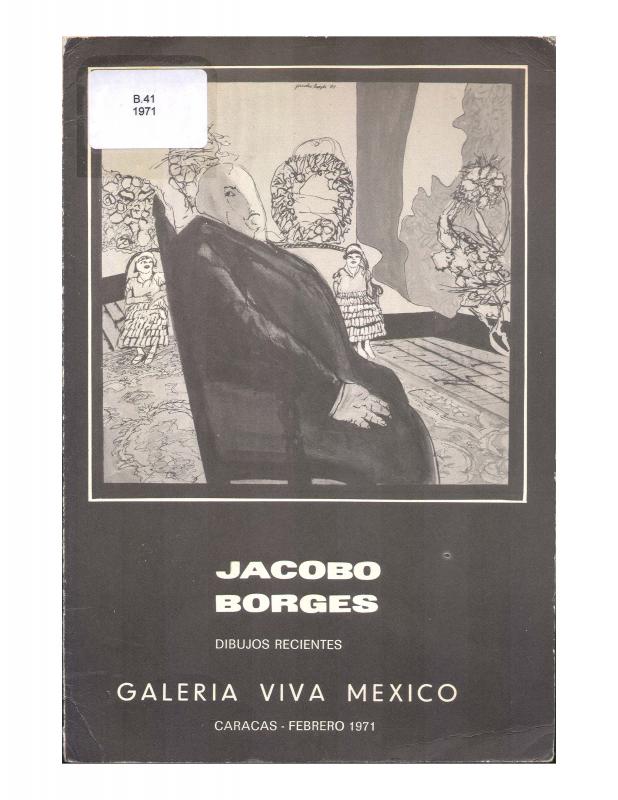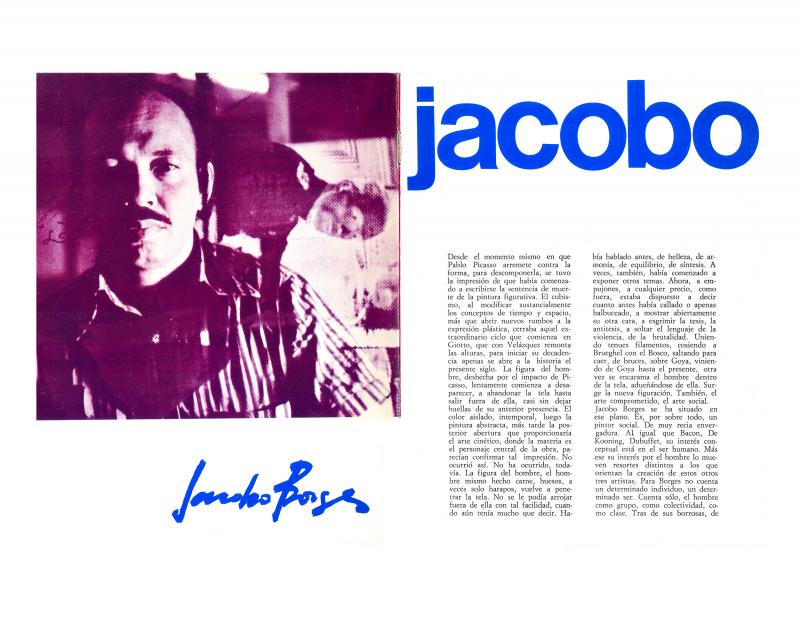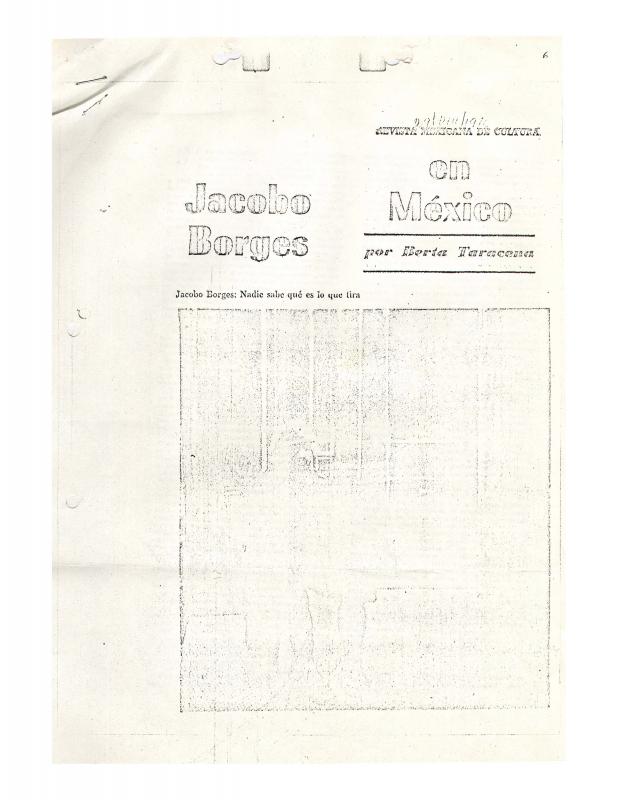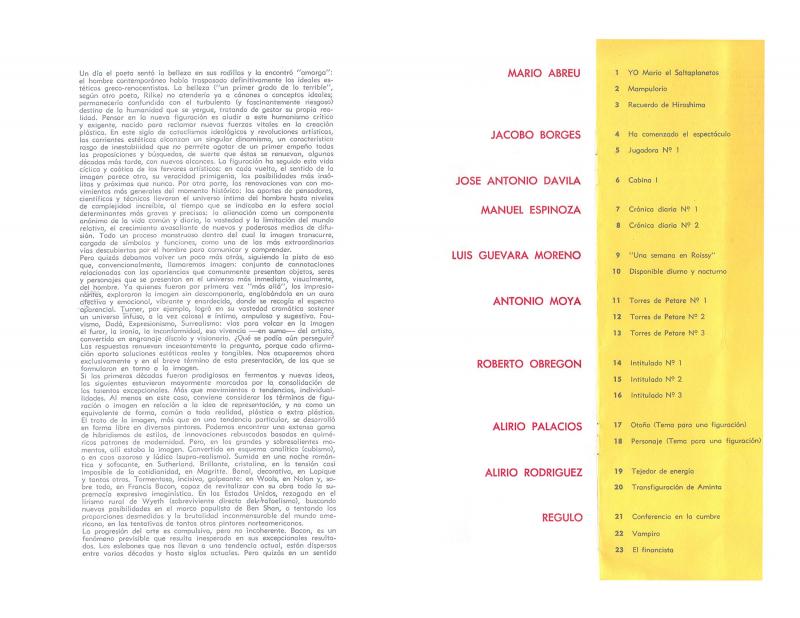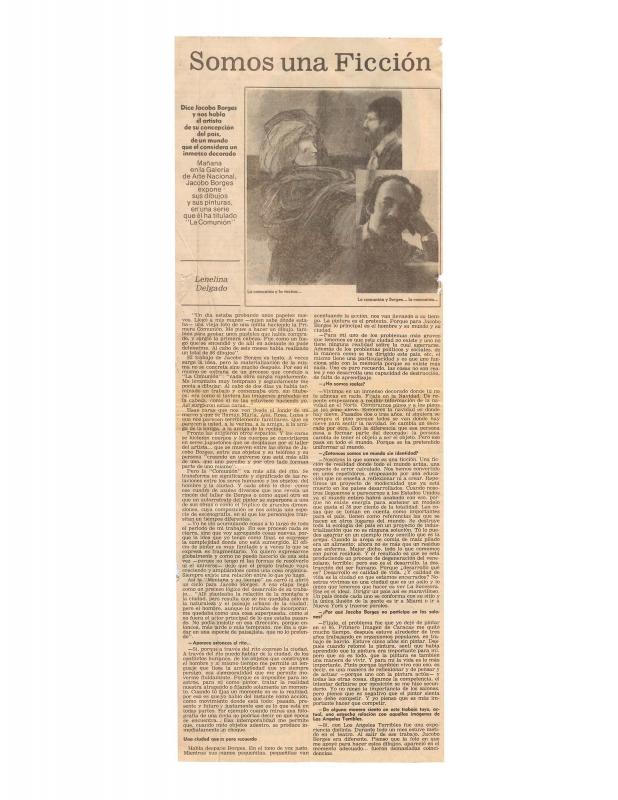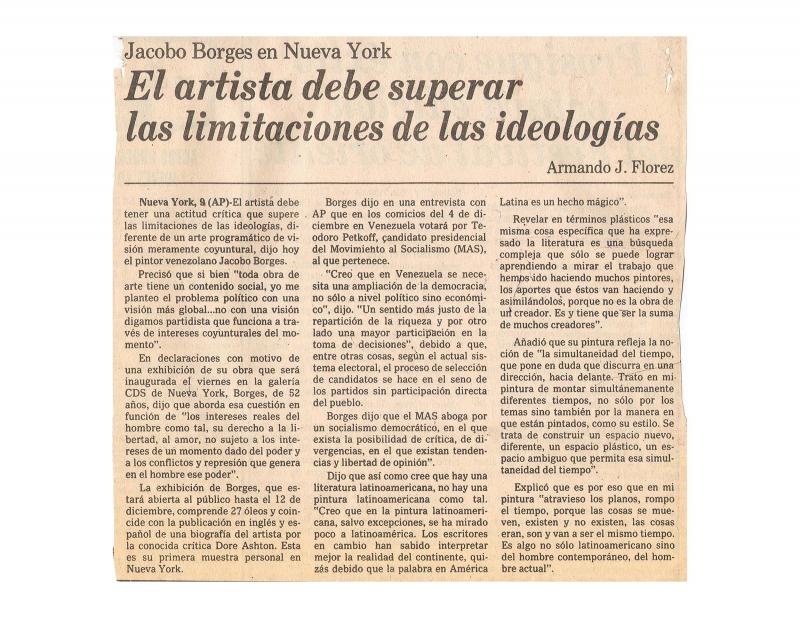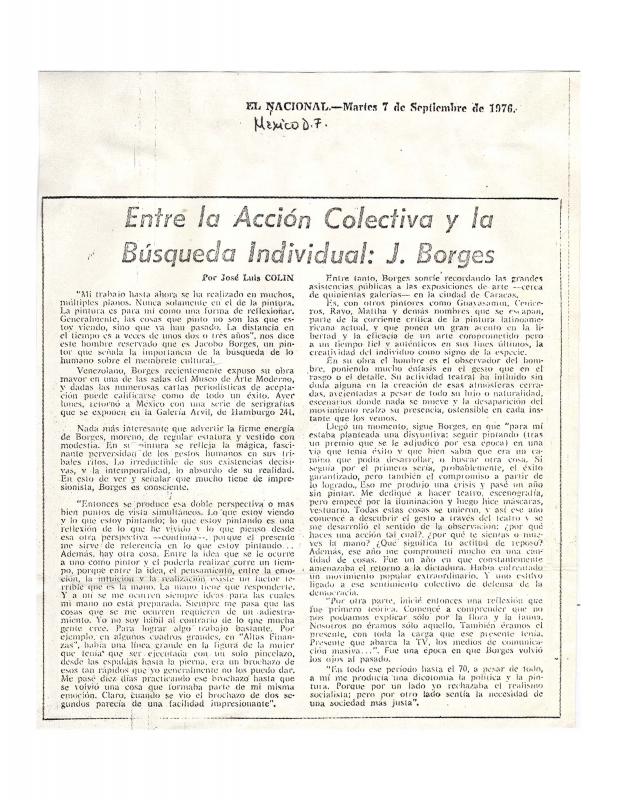In this article, Elisabeth Pérez Luna discusses the basic interests underlying the work of well-known painter Jacobo Borges, mainly [focusing on] communication, experimentation, and the search for identity. Because he considers himself a communicator above all else, Borges tirelessly pursues the experimental in relation to the informational nature of the image, therefore delving into media other than painting and drawing. Indeed, Borges did not paint from 1966 to 1971, but instead did research in audiovisual media, which led to Imagen de Caracas (1967), the first multimedia show ever produced in Venezuela. An intense experience on collective creativity in the country’s history, that work was produced in the context of the four hundredth anniversary of the founding of Caracas. On the occasion of the III Conferencia del Mar, Borges produced another collective multimedia show geared to informing delegates and guests on national history and geography. On both occasions, Borges placed emphasis on the image as vehicle of information about Venezuelan identity; on this second occasion, the event entailed reworking and reinterpreting, among other things, historical works by Venezuelan artists. The communicational power of Borges’s painting revolves around the use of stereotypes—enduring forms by which beings and attributes are recognized and identified by a given society—which he then undermines, placing them in unconventional situations to induce the viewer to question all socially accepted forms of representation.
For other texts on Jacobo Borges’s work, see by Donald Kuspit “Jacobo Borges’s creation of potential space / Jacobo Borges e la creazione dello spazio potenziale” [doc. no. 1060608]; by Perán Erminy “Sin título. [Una exposición de obras de Jacobo Borges]” [doc. no. 1060424]; by critic Inocente Palacios “Jacobo Borges” [doc. no. 1060361]; the essay by historian Berta Taracena “Jacobo Borges en México” [doc. no. 1063795]; by critic Roberto Guevara “Sin título. [Un día el poeta sentó la belleza en sus rodillas…]” [doc. no. 1060477]; the interview by Lenelina Delgado “Somos una ficción” [doc. no. 1063831]; the one by Armando J. Florez entitled “El artista debe superar las limitaciones de las ideologías: Jacobo Borges en Nueva York” [doc. no. 1065435]; and the one by José Luis Colin “Entre la acción colectiva y la búsqueda individual: Jacobo Borges” [doc. no. 1063769].

